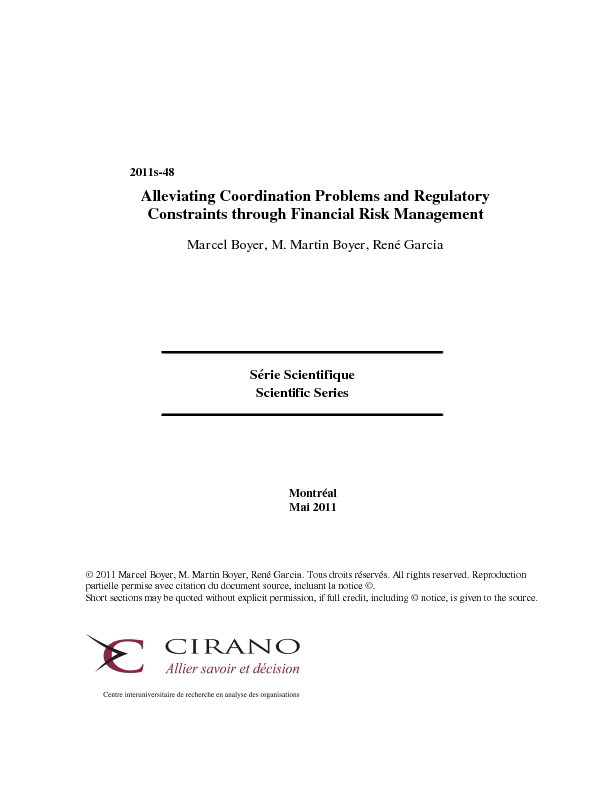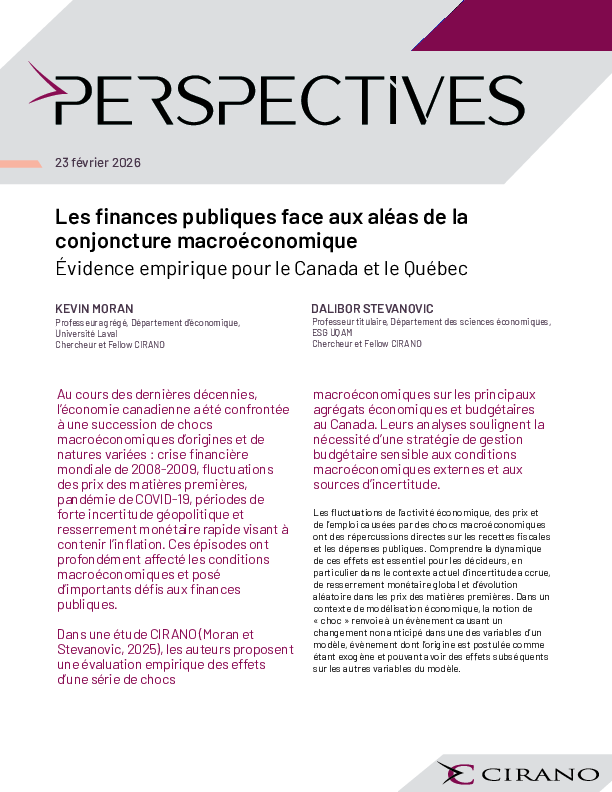Alleviating Coordination Problems and Regulatory Constraints through Financial Risk Management
We characterize a firm as a nexus of activities and projects with their associated cash flow distributions across states of the world and time periods. We propose a characterization of the firm where variations in the market price of risk induce adjustments in the value-maximizing combination of projects. Changing the portfolio of projects generates coordination costs. We propose a new role for financial risk management based on the idea that the use of financial derivatives may reduce coordination costs. We find empirical support for this new rationale for the use of financial derivatives, after controlling for the traditional variables explaining the need for financial risk management.
[ - ]




